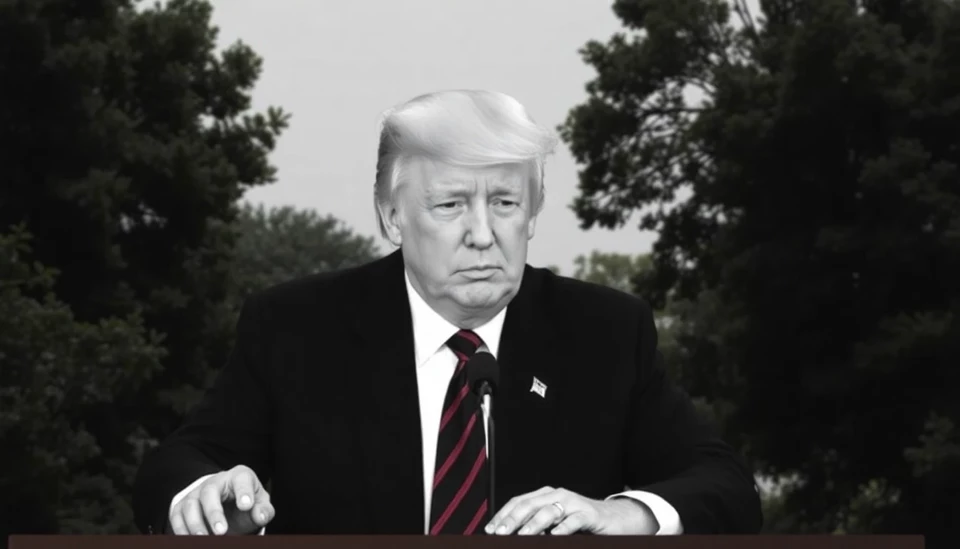
In a significant move that could reshape environmental regulations, former President Donald Trump has signed a new executive order aimed at protecting major oil companies from state-imposed fines related to greenhouse gas emissions. This decision has generated considerable debate among environmentalists, legal experts, and industry leaders alike, as it rolls back regulations that many argue are essential for combatting climate change.
The signing took place on April 9, 2025, during an event in Texas, a state known for its substantial oil production and influence in the energy sector. This order marks a continuation of Trump's pro-fossil fuel agenda and his administration's strategy to enhance the competitiveness of American oil and gas companies against both domestic and international challenges.
The executive order effectively prohibits state regulators from enforcing stricter emissions standards than those established by federal law. This decision is seen as a lifeline for oil companies facing increasing scrutiny over their contributions to air pollution and climate change, allowing them to operate with fewer constraints.
Critics of the order argue that it undermines decades of progress toward cleaner air and a more sustainable environment. Environmental advocacy groups warn that the new policy will exacerbate climate issues by enabling oil companies to continue emitting high levels of greenhouse gases without facing penalties or the impetus to innovate towards cleaner practices.
Legal analysts predict that this executive order may face significant challenges in the courts, as states argue for their rights to implement tougher regulations to protect public health and the environment. Many states, particularly those governed by Democratic administrations, have indicated they are prepared to challenge this order vigorously, citing the need for local autonomy in environmental regulation.
In response to the executive order, several Democratic state governors have released statements condemning the move, emphasizing their commitment to protecting their constituents from the impacts of pollution and climate change. They argue that local governments should maintain the authority to enforce environmental safeguards that reflect the needs and values of their communities.
The oil industry, however, is celebrating the decision, viewing it as a necessary step to alleviate regulatory burdens. Industry representatives argue that the new order will encourage job growth and investment in the sector, fostering economic development while maintaining energy independence.
As the debate unfolds, the implications of this executive order could have far-reaching effects, not only on the energy industry but also on national and state relationships regarding environmental governance. The growing tensions between federal policies and state regulations will likely become a focal point in the ongoing discourse surrounding climate change and energy production in the United States.
With the future of energy regulation hanging in the balance, all eyes will be on the reactions from both state governments and environmental groups as they navigate the legal, political, and environmental landscapes shaped by Trump's latest action.
In a broader context, this executive order represents a pivotal moment in the ongoing tug-of-war over environmental policy in America, reflecting the stark divisions that remain in public and political attitudes toward climate change and energy production.
As stakeholders on all sides prepare for the potential repercussions of this order, the dialogue surrounding environmental responsibility and energy independence will continue to evolve amidst the backdrop of an increasingly warming planet.
#Trump #OilIndustry #ExecutiveOrder #ClimateChange #EnvironmentalRegulations #GreenhouseGases #StateRights #EnergyIndependence #TexasEnergy
Author: Sophie Bennett




